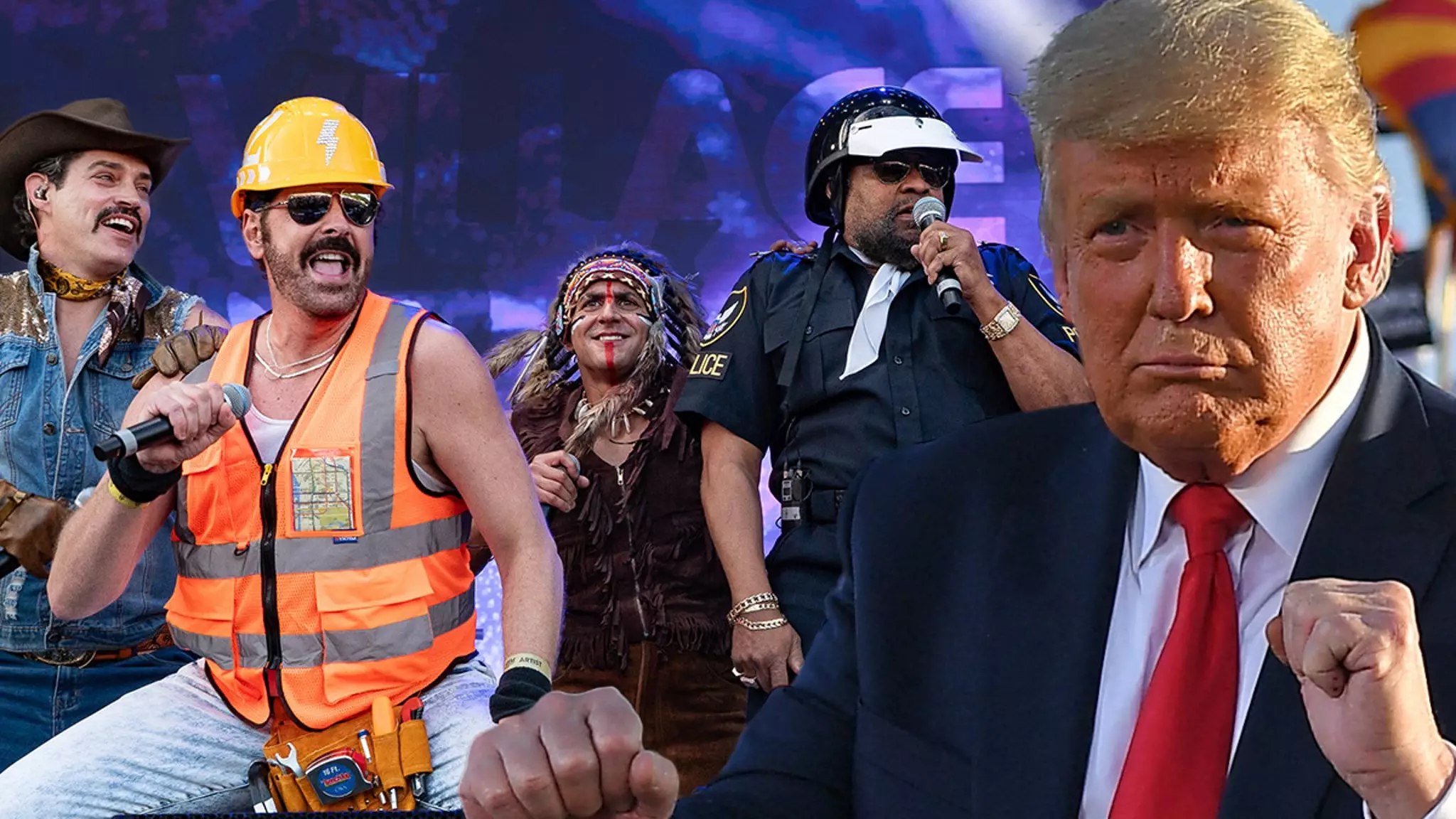The recent announcement that the Village People will perform at events surrounding Donald Trump’s inauguration has stirred a mix of nostalgia and criticism. Once at odds with the President over his use of their songs at political rallies, the band has seemingly embraced a new chapter, emphasizing that their music transcends political divides. This shift indicates a remarkable transformation, particularly for a group that once actively distanced themselves from Trump’s political persona.
The irony of the situation is palpable; the Village People’s most famous anthem, “Y.M.C.A.,” has become synonymous with celebrations, including political ones, even if not everyone agrees with its usage. Their decision to participate in Trump’s inaugural festivities appears to stem from a belief in the unifying power of music, even amidst a climate of division. Yet, this move raises questions about the authenticity of their claims. Does their newfound acceptance of Trump’s presidency reflect a mere business decision rather than a genuine reconciliation of ideologies?
The band articulated their reasoning eloquently by stating that “music is to be performed without regard to politics.” This perspective can resonate with many who believe that art should remain independent of the political landscape. However, the choice to associate with a figure as polarizing as Trump is not a neutral act. It sends a message about where the band stands—or at least how they wish to position themselves commercially.
The statement by the Village People alludes to a desire for unity in a time of tumult. By invoking the idea of music as a bridge across political rifts, they are attempting to redefine their role within contemporary society. Nevertheless, critical reception is inevitable; some fans see this as a betrayal of the band’s original ethos, which championed diversity and inclusivity rather than alignment with any one political figure.
As the announcement reverberates through social media platforms, responses are decidedly mixed. Some fans express anger or disappointment, arguing that participation in Trump’s events undermines the band’s historical commitment to community and inclusiveness. Others, however, welcome the decision, viewing it as an opportunity to promote solidarity at a time when it is desperately needed. This juxtaposition of perspectives illustrates the complexity of public sentiment surrounding the current political climate.
Additionally, the Village People’s performance at various inaugural events raises intriguing implications for other artists and entertainers who may face similar dilemmas. Should they prioritize their principles, or adapt their stances for broader appeal? For some, the decision to engage with politically charged figures may lead to consequences that extend beyond financial gain, potentially impacting their reputations and relationships with fans.
The Village People’s choice to participate in Donald Trump’s inauguration events undoubtedly ignites discussions about the intersection of politics and entertainment. While they aim to honor the tradition of musical celebration, the underlying tension reflects broader societal questions about authenticity and compromise in artistry. In a world where music often acts as a vessel for both resistance and unity, it remains to be seen how the Village People will navigate these choppy waters—balancing commercial viability with their legacy as icons of inclusivity and joy. Ultimately, the hope for many is that the power of music will prevail, proving once again that it can serve as a unifier, even in the most divisive times.

